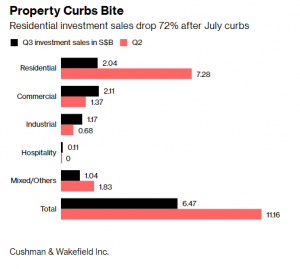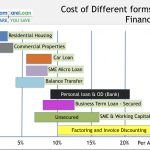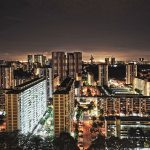Leading real estate services company Cushman & Wakefield Inc in speaking to Bloomberg pointed out that the Government’s latest property cooling measures have caused the en bloc sales market collapse. In referring to data compiled by her company, Christine Li, head of research for Singapore at Cushman said, “the collective sales market was decimated after the recent cooling measures.”
The en bloc sales market collapse captured in Cushman’s data showed that just two redevelopment sales worth $353 million were completed in the third quarter, down from $3.8 billion of transactions the previous quarter.
Table of Contents

The property cooling measures – higher additional buyer’s stamp duty (ABSD) and lower loan-to-value (LTV) limit – took the market by surprise as recent trends suggest that the private residential market is finding its own equilibrium. The en bloc sales market collapse have been amplified by developers being less active in the collective sale market, while new homes sales at some recent launches have moderated.
The introduction of these fresh property cooling actions a year into market recovery, after four years of decline, was aimed at calming the euphoria in the private residential sector. Home prices had risen by 3.9 per cent in Q1 2018, and another 3.4 per cent in Q2 according to flash estimates. The price growth – which was tapered in the last quarter – was largely driven by the brighter economic outlook, pent-up housing demand and more positive market sentiment.
En Bloc Sales Process Singapore – A Definitive Step-by-step Guide
Colliers International said on the heels of the property cooling measures introduction in July that the curbs – being the ninth round of property cooling initiatives since 2009 – will put a drag on home sales this year as the higher ABSD could curtail investment demand from both locals and foreigners, and the larger cash outlay required for down payment on homes weighs on buying interest.
Ms Tricia Song, Head of Research for Singapore at Colliers International, said then: “Based on our analysis, the collective sales that have been concluded since 2016 could generate around 25,000 new homes from 2021 onwards. Coupled with the moderate Government land sales sites over the past two years, the upcoming supply of new units in the medium term does not look excessive as long as economic fundamentals remain sound. Given that developers have exercised more restraint in bidding for collective sale sites in recent months, the launch pipeline should remain fairly sustainable over the next 3-4 years, and we do not think developers necessarily need to embark on deep price cuts to sell units especially if the new launches are paced out evenly.”
https://www.icompareloan.com/resources/mortgage-broker-singapore-best-rate/
Cushman said that the rebound in property prices after a slide since 2013 had prompted aggressive land bids from developers, leading to an explosion of en-bloc sales. The new property cooling measures has made it more expensive for developers to redevelop older properties.
The en bloc sales market collapse is propped up by investment sales of the commercial and industrial property.
“Clearly these two sectors emerged as winners from the recent fallout in the residential sector,” Cushman’s Li said. Li added that office sales rose 54 per cent to $2.1 billion last quarter, and industrial property deals jumped 73 per cent to $1.2 billion.
She added that both commercial and industrial property will continue to draw interest in the near-term as liquidity remains high and developers seek diversification.
The Minister for National Development said in early October that it was premature to say if the property cooling actions introduced on July 5 achieved its intended objectives.
The Minister, Mr Lawrence Wong, said:
“The property cooling measures implemented on 6 July 2018 are intended to moderate the residential property market cycle and keep price increases in line with economic fundamentals. Loan-to-Value (LTV) limits were tightened across all housing loans, including those taken by first-time buyers, as the price increases prior to the measures were broad-based across the market, reflecting demand from all types of buyers. However, we maintained Additional Buyer’s Stamp Duty (ABSD) rates for Singapore Citizens and Permanent Residents buying their first residential property.
As the measures were only introduced recently, it is premature to conclude whether they have been effective. Nevertheless, there are early signs that the measures may have kept the pace of price increase in check. Based on URA’s latest flash estimate of the Property Price Index, prices increased by 0.5% in 3Q2018, compared to 3.9% and 3.4% in 1Q and 2Q2018 respectively.
The Government will continue to monitor trends in the property market, and adjust our policies as necessary, to maintain a stable and sustainable property market.”
How to Secure a Home Loan Quickly
If you are concerned about the en bloc sales market collapse and want to invest in other properties, but are ensure of funds availability for purchase, our mortgage consultants at iCompareLoan can set you up on a path that can get you a home loan in a quick and seamless manner.
Our consultants have close links with the best lenders in town and can help you compare Singapore home loans and settle for a package that best suits your home purchase needs. Find out money saving tips here.
Whether you are looking for a new home loan or to refinance your existing one, the Mortgage broker can help you get everything right from calculating mortgage repayment, comparing interest rates all through to securing the best home loans in Singapore. And the good thing is that all our services are free of charge. So it’s all worth it to secure a loan through us.
For advice on a new home loan.
For refinancing advice.






